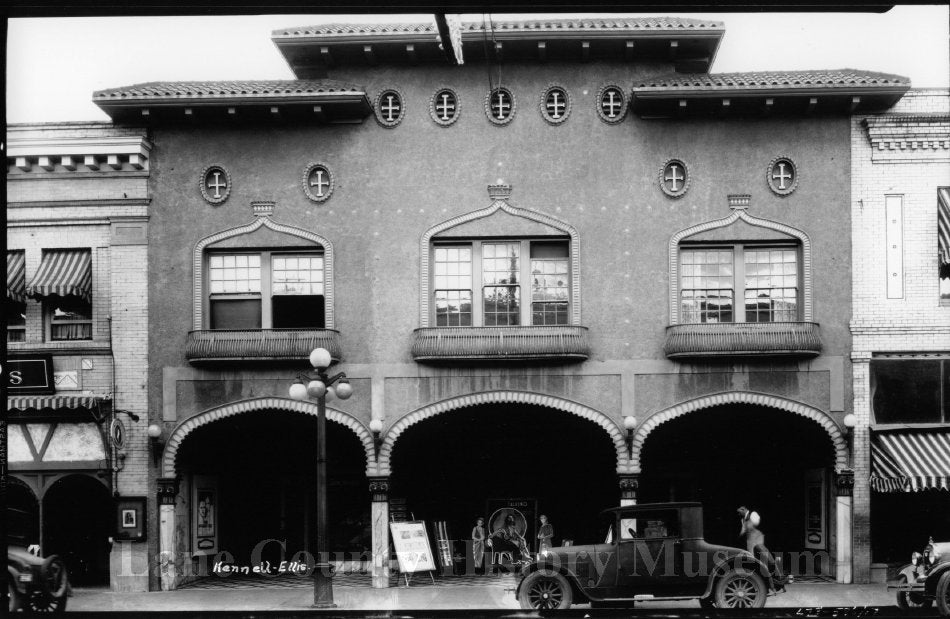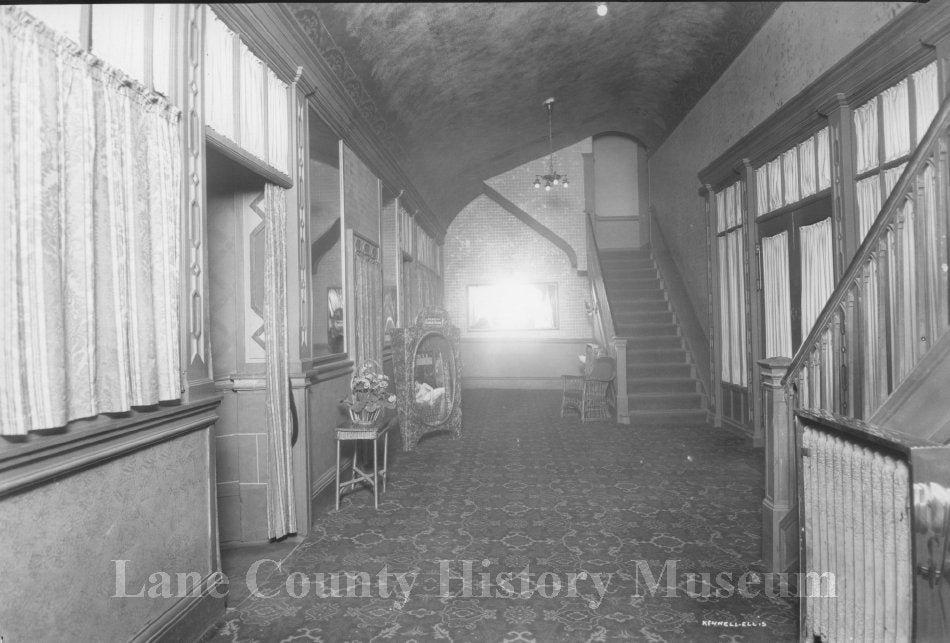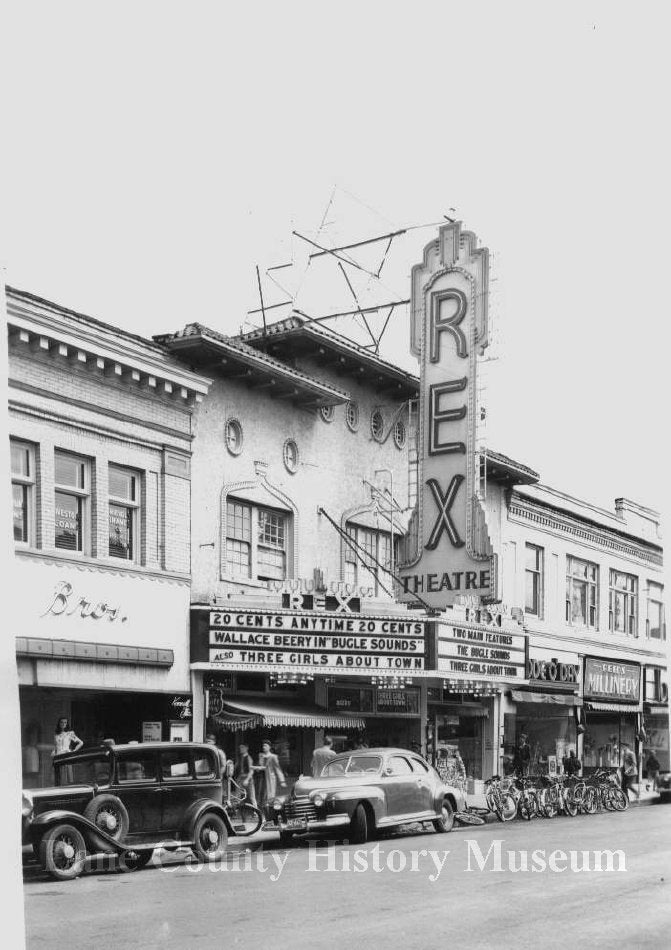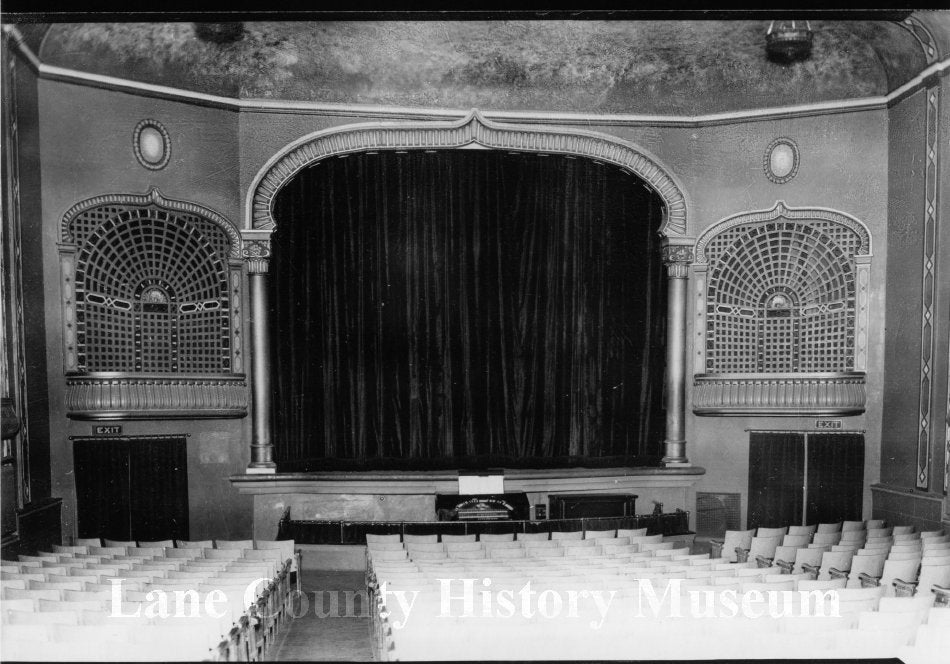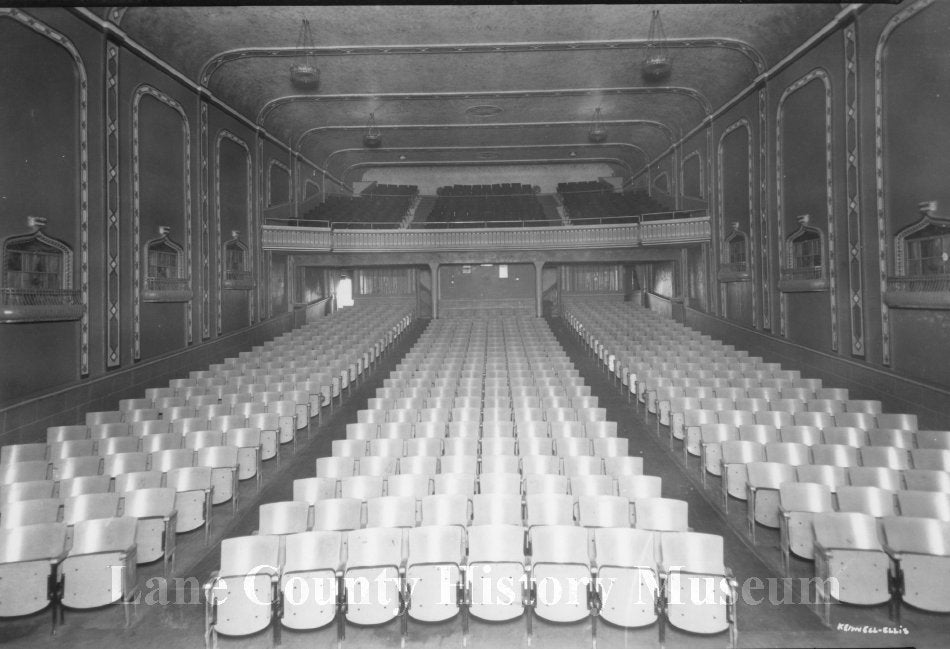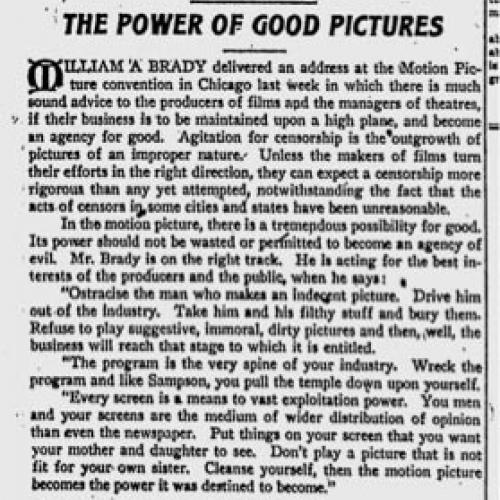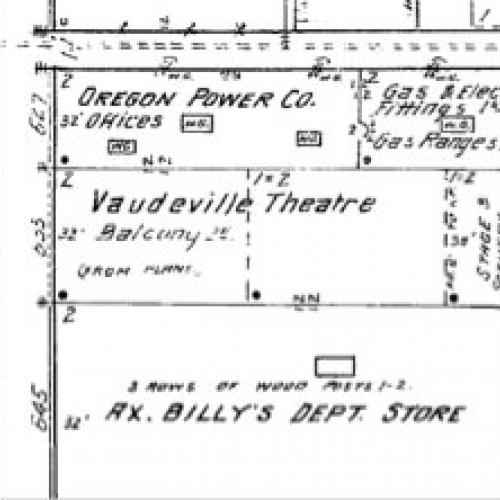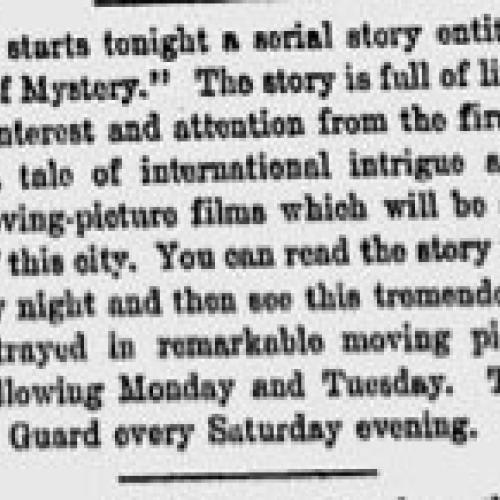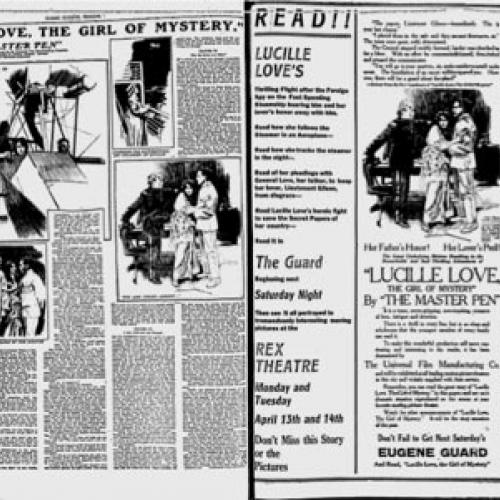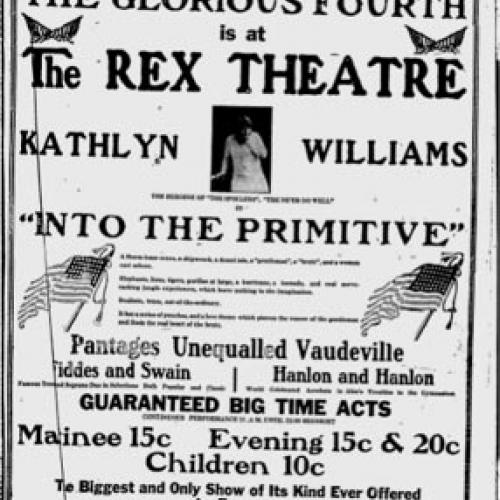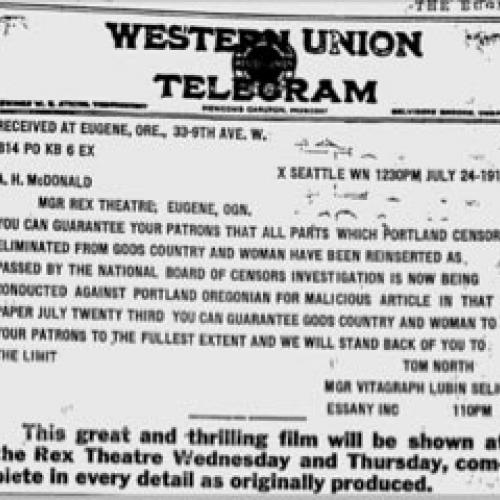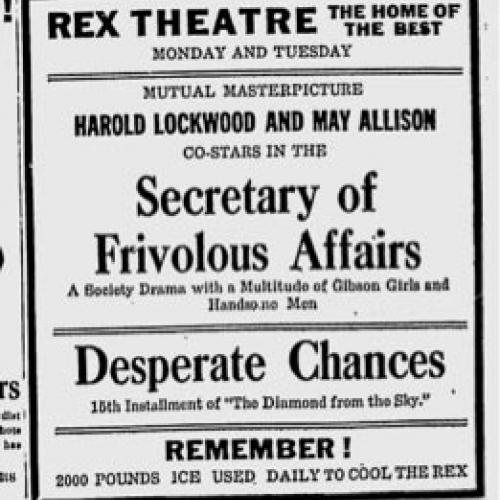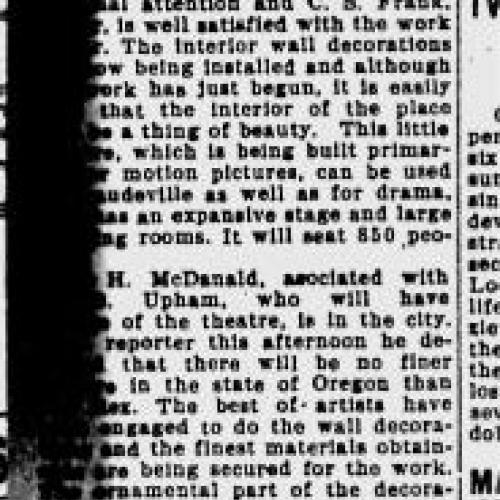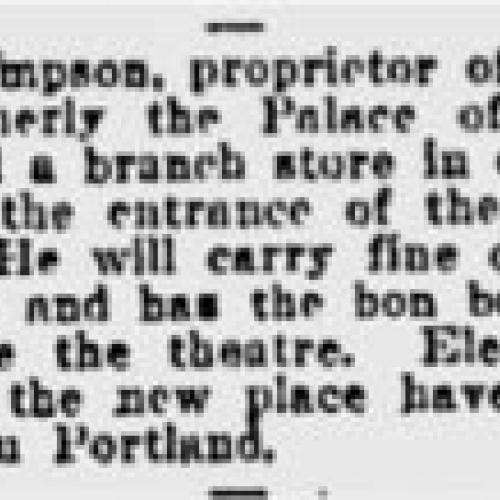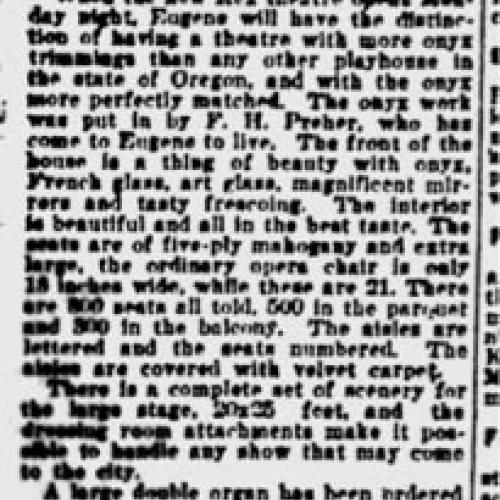In October 1912, the grand and luxurious Rex Theatre joined the Folly and the Savoy to mark the beginning of the movie palace era in Eugene, a phenomenon occurring simultaneously across the United States at this time. While earlier movie houses were mostly in storefronts (e.g., the Electric, the Bijou, the Dreamland, and the Bell in Springfield), the new generation of theaters were purpose-built structures designed primarily to showcase movies and maximize the movie-going experience.
The Rex was located at 967 Willamette St. in downtown Eugene right next door to the large Ax Billy Department Store. (The pre-1913 address was 635 Willamette before the street numbering system changed). The Rex had a corporate owner, the Progressive Theater Company, whose principals were C.S. Frank, A.H. McDonald, and F. Upham. McDonald managed the day-to-day operations of the theater.
With 800 seats, the Rex was the largest theater in town, and sporting more onyx trimmings than any other playhouse in Oregon, according to articles in the local newspaper. The seats themselves were designed for maximum comfort, being 21 inches wide instead of the usual 18 inches. The entrance featured decorative glass, magnificent mirrors, and “tasty frescoing,” while the interiors were all “in the best taste.” The Varsity sweets store set up a “branch store” inside the lobby to sell candy and cigars to theater patrons. In the summer months the manager used 2000 pounds of ice daily to keep the theater cool.
The theater’s sign was a massive, gaudy electric crown that hung suspended over Willamette St.
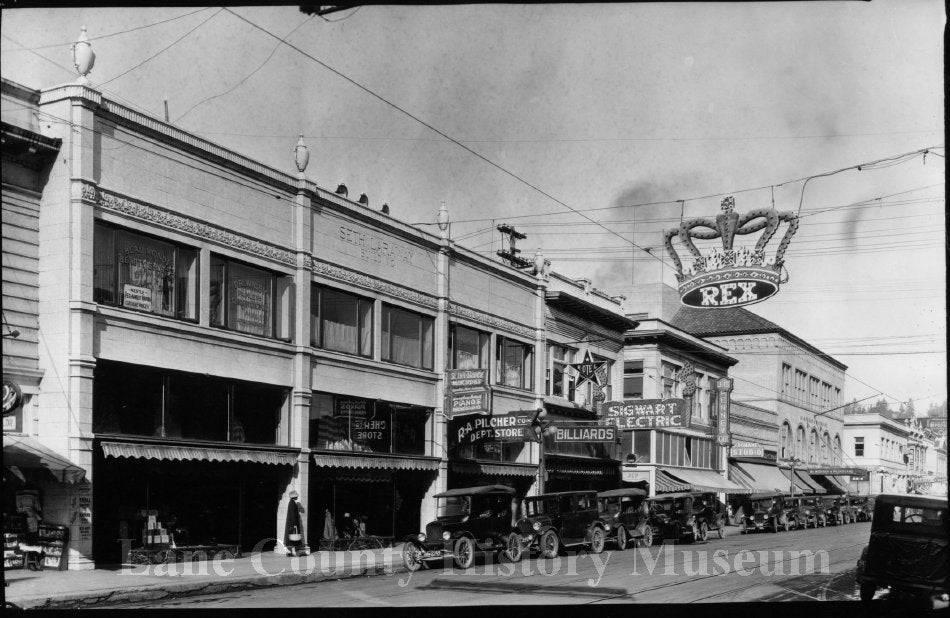
The Rex presented a program typical of the era, with a combination of one- and two-reel movies, some longer features (5-7 reels), newsreels, comedy shorts, documentaries, and a smattering of vaudeville. A Friday night at the theater in 1912 included four photoplays and a vaudeville act: the two-reel hand-colored feature “In the Land of Lions” (Gaumont), “Sweet Alice Ben Bolt” (Imp), “All on Account of a Song” (Éclair), “Impressing Eliza” (Éclair), and a lyric soprano named Miss Bess Stokes accompanied by Madame Stephanie and Miss Nicklin on harp and violin. Admission was 15¢ for a seat on the main floor, or 25¢ for the balcony.
In 1914, the Rex partnered with the Eugene Daily Guard to run a serialized story with a movie-print tie-in. “Lucille Love, The Girl of Mystery” ran in regular installments in the newspaper, with complementary episodes at the Rex every week. This was a popular marketing strategy across the United States to enhance both newspaper readership and theater attendance.
In late July 1916, the Rex generated some positive local publicity for showing an uncut version of God’s County and the Woman (Vitagraph), a film that had been heavily edited by the Portland motion picture Censor Board when it played in that city (See "Censors Blast Big 4 Feature").
At the same time the controversial movie was on the program at the Rex, the Rex manager A.H. McDonald was invited to speak about movie censorship at an interdenominational conference of ministers being held at the University of Oregon. McDonald considered saloons more dangerous than movies. “Censorship is not the way to get good pictures, and is in effect a suppression of freedom,” he argued. The Eugene Daily Guard also ran an editorial against movie censorship in response to the controversy.
While as the Rex was attracting so much attention (and, presumably audience) for “God’s Country and the Woman,” the Eugene Theatre down the street was gearing up for the exclusive Eugene premiere of “Birth of a Nation,” opening on July 31, 1916. It is probably no coincidence that Rex manager McDonald chose to show such a newsworthy film during a week when he would otherwise be sure to lose patrons to D.W. Griffith’s much-anticipated historical epic.
The Rex continued to operate until 1955 when it changed ownership and was renamed the Fox Theatre. The building still stands near the corner of 10th and Willamette next to (or perhaps part of) the Downtown Athletic Club, and while very nice, it is unrecognizable from its earlier glory.
